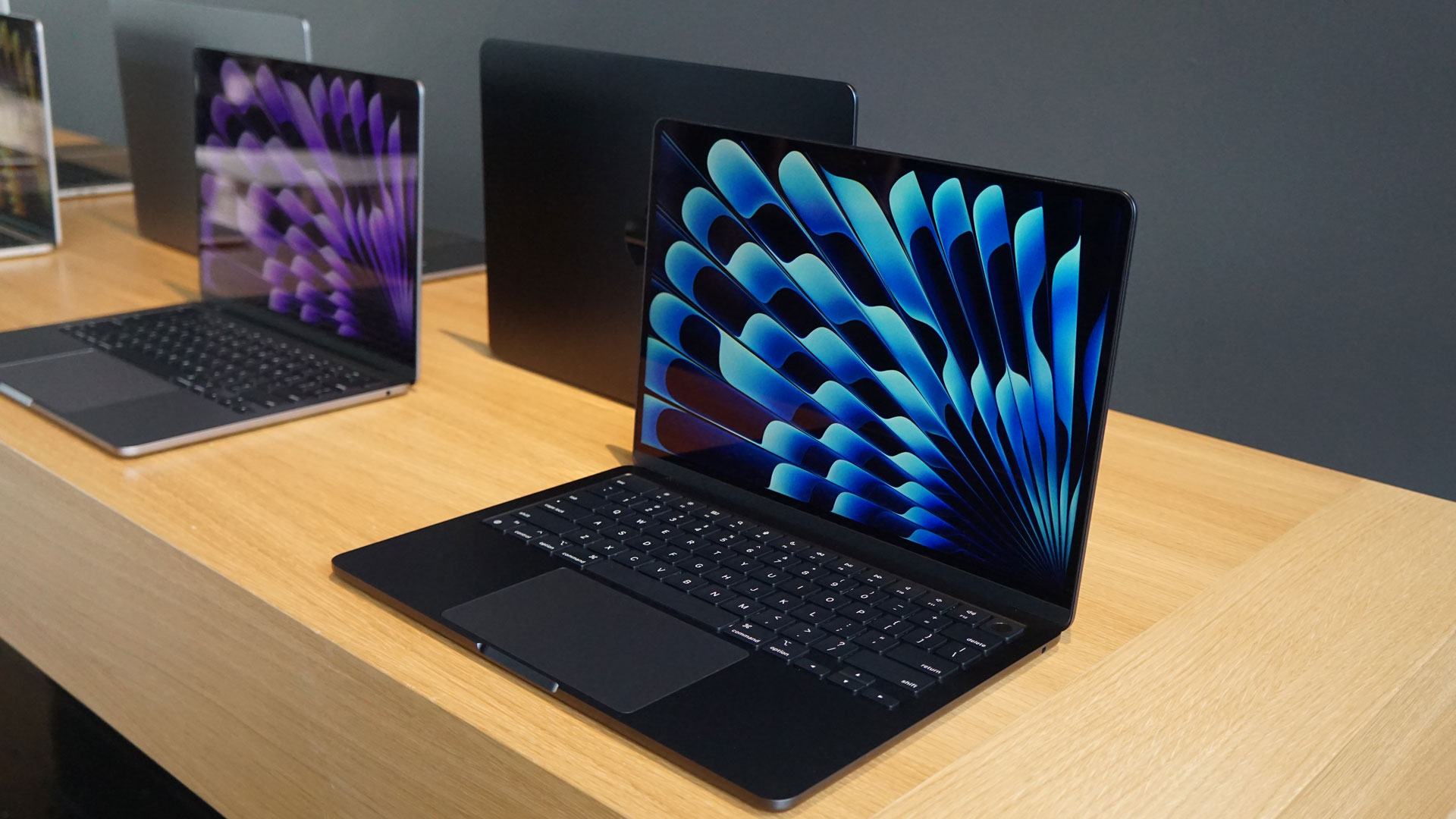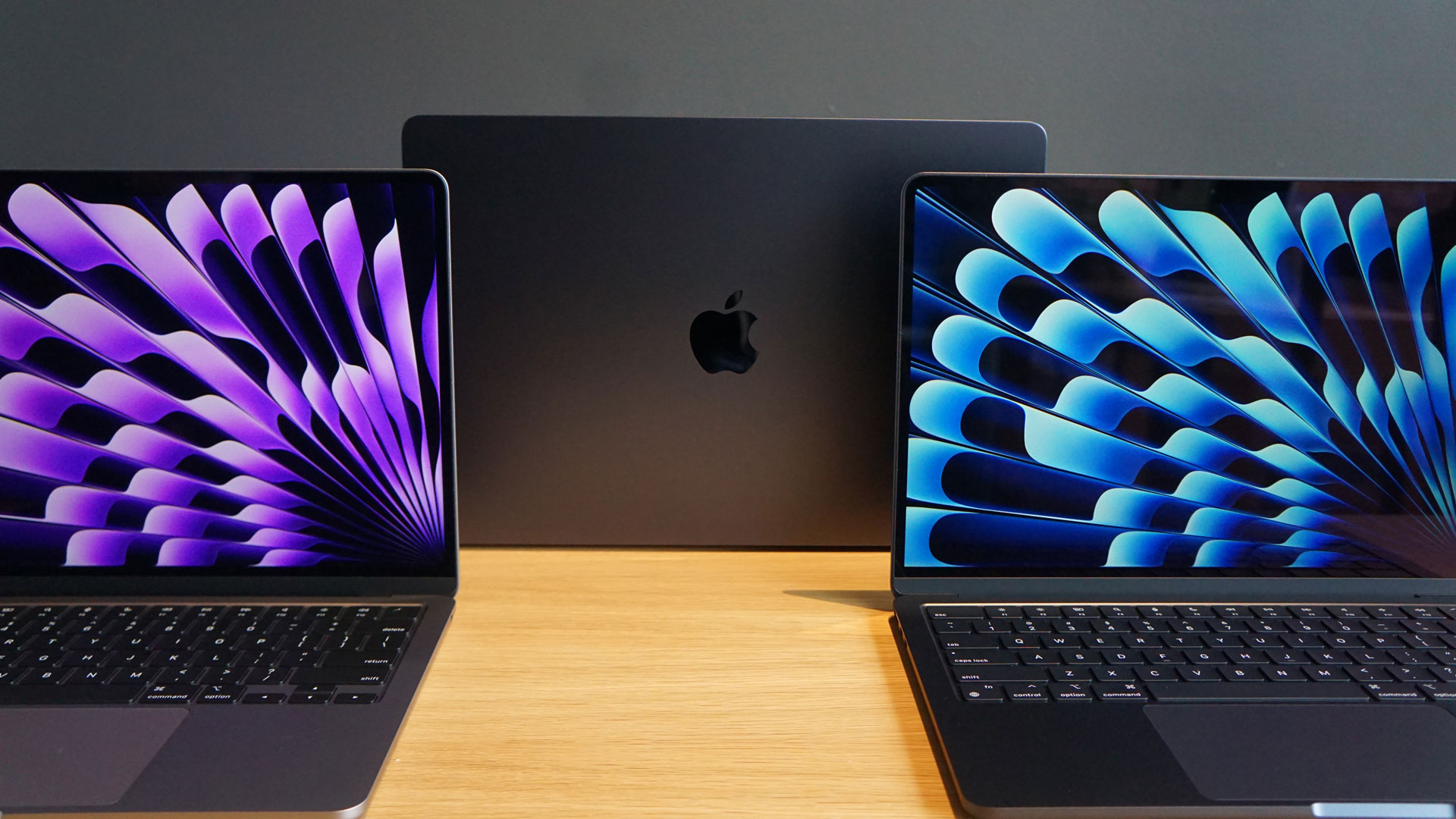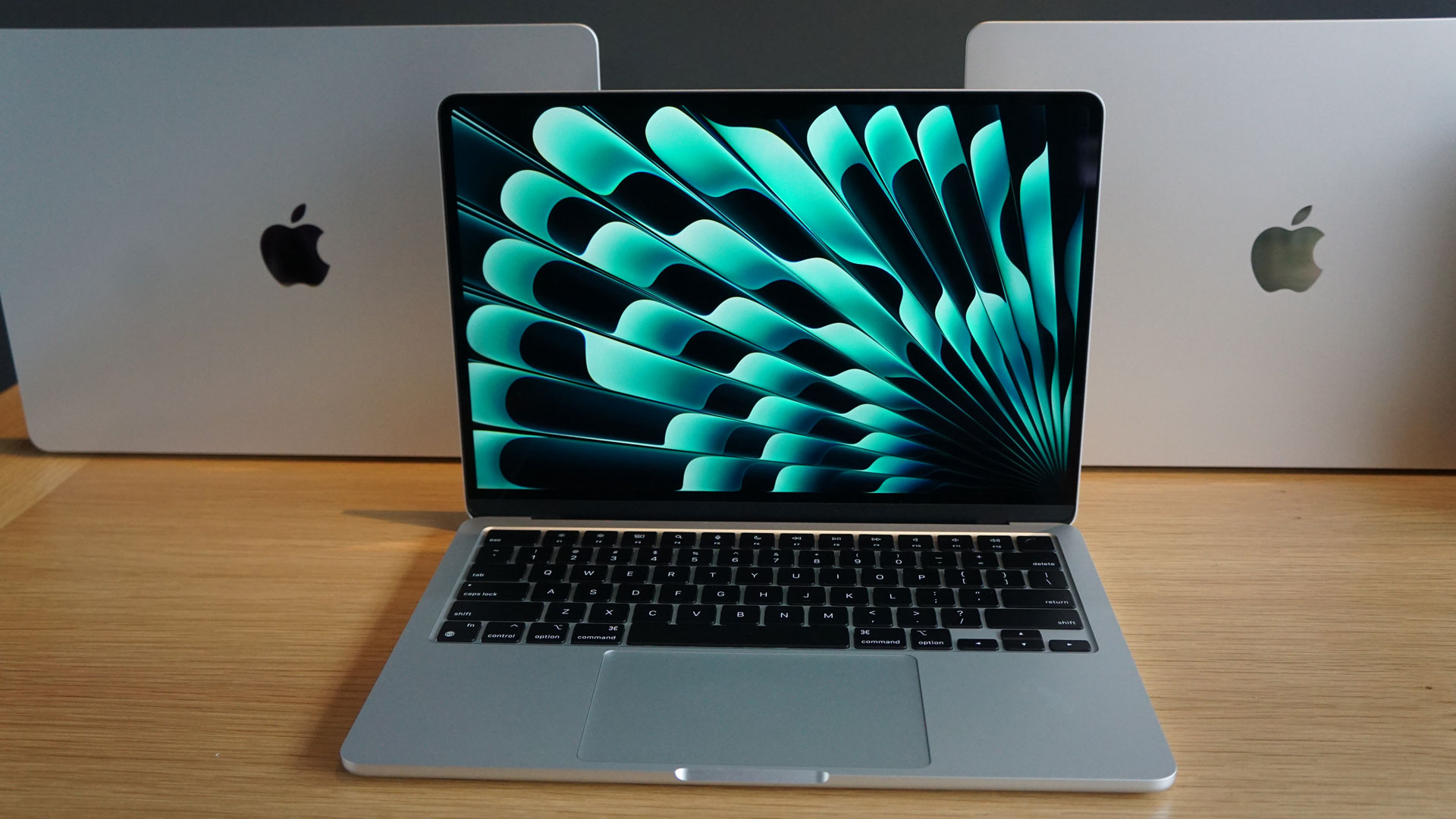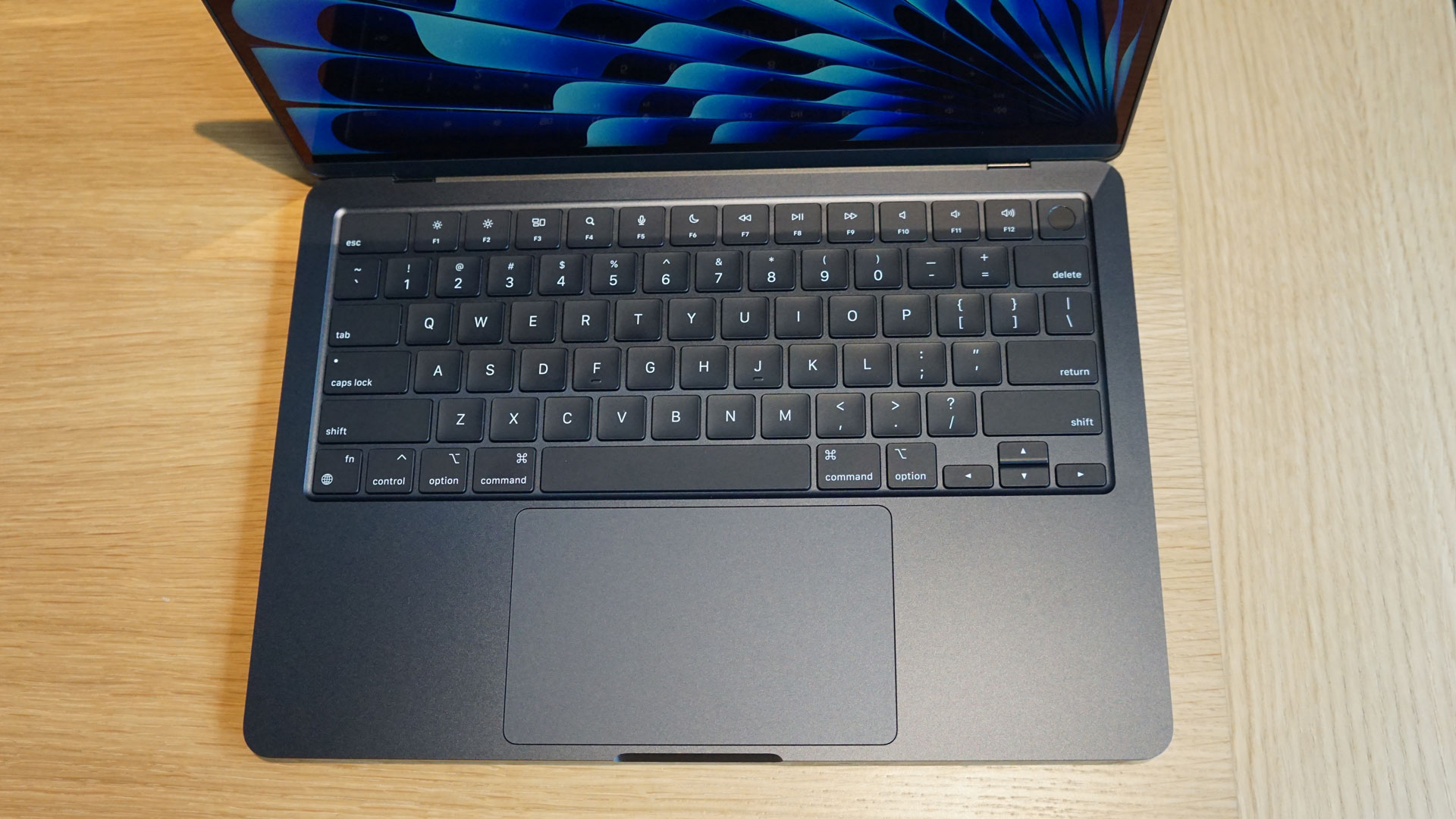Apple's MacBook Air M3 might be a message to Intel — We do AI PCs, too, and you ain't seen nothing yet
Who does AI PC better

Sign up for breaking news, reviews, opinion, top tech deals, and more.
You are now subscribed
Your newsletter sign-up was successful
Lost amid today's hoopla over a pair of brand-new M3 MacBook Air laptops was a none-too-subtle shift in product messaging that may mark Apple's official entry into the race to build an AI PC.
In the press release on the new 13-inch and 15-inch MacBook Air ultraportables featuring the newest Apple silicon were two paragraphs devoted to claiming the MacBook Air is the "World’s Best Consumer Laptop for AI". Now, if you weren't tracking the computer industry as I do, you might've just chalked that up to some oddly specific boasting or hyperbole on Apple's part. I see it a little differently though.
First, a little history. Up until 2020, virtually all new Apple Macs, including MacBook Airs ran Intel CPUs. That year, Apple announced its intention to build its own chips and ultimately replace all Intel CPUs with its bespoke system on a chip (SoC) that came to be known as Apple Silicon. The first such chip – the M1 – arrived on the much-loved MacBook Air M1 (now discontinued).
The march of silicon

Apple eventually made good on its promise and through multiple iterations and upgrades, it finally replaced all Intel silicon with its own. Intel still owns most of the world of Windows PCs, but in some ways, Apple is seen as the system innovator, creating SoCs that run faster and more efficiently than anything Intel can produce.
Intel's big plan for countering that perception, and exciting people who are looking for other ARM-based solutions that can run Windows as fast and efficiently as something like Apple silicon could, is to revise its whole chip lineup with Intel Core Ultra processors and, more importantly, the "AI PC."
The AI part comes from the Neural Processing Unit or NPU that will pair with Intel Core Ultras as a sort of AI coprocessor. Intel has the support of virtually all major Windows PC manufacturers and, perhaps more importantly, Microsoft. The Redmond software giant is in the midst of a Copilot full-court press. The generative AI, formerly Bing AI chat, that it built with intelligence from OpenAI, is seemingly everywhere, and on AI PCs it'll appear as a Copilot keyboard button.
What exactly any of us will do with an "AI PC" is unclear but we will be talking about these systems all summer and into the back-to-school buying season in the Northern Hemisphere.
Sign up for breaking news, reviews, opinion, top tech deals, and more.
Apple, by some measures, owns just 17% of the PC market. Even if people do believe Apple silicon is better and macOS is a better platform than Windows, they can't afford to sit back and let Intel and Microsoft innovate and market themselves to even greater PC market heights.
We know AI

This brings us back to the "World's Best Laptop for Consumer AI." Apple has a point, though. It's been doing AI for ages, going back to adding its first Neural Engine in the iPhone 8 courtesy of the A11 Bionic CPU. You can draw a direct line from this early onboard machine learning system to the 16-core Neural engine on the M3.
Apple has made no secret of its silicon's onboard AI capabilities, but it never positioned them front and center. That's all changing now.
The company has no choice. Part of Apple's problem is that, unlike Microsoft, OpenAI (ChatGPT), and Google (Gemini), Apple has no generative AI product to speak of. Siri is not generative, it can't generate poetry, presentations or artwork. That's hamstrung Apple's efforts to appear ahead of the curve.
In the release though, Apple specifically mentions Large Language Models (LLMs): "Combined with the unified memory architecture of Apple silicon, MacBook Air can also run optimized AI models, including large language models (LLMs) and diffusion models for image generation locally with great performance."
The shape of things to come

Running locally, without the need for potentially less secure or slower cloud support has always been Apple's secret AI sauce. However, Apple is fully aware that it can't win this game if it doesn't allow for cloud-based generative AI.
In demonstrations shown to me, I saw the MacBook Air M3 able to run both cloud-based Microsoft CopIlot prompts, and local generative tasks with apps like Luminar Neo, which can take a blurry nighttime photo and add generative info to make the image usable. In both instances, their performance appeared almost instantaneous and easily as good as what you'd get from a Cloud-based generative AI.
The point of showing off these apps and making these pronouncements though is not just about telling the world Apple does Gen AI, too. I think it's preparing us for what's to come.
It's not just new products and press releases. Apple CEO Tim Cook now takes almost every opportunity to promise big things in Generative AI (remember when he used to talk up "AR"? What a difference a letter makes).
Cook knows that Apple silicon is more than ready for Large Language Models and Generative AI for images and text, and we're going to see Apple take advantage of all that power starting with WWDC 2024 in June.
That's the message from Apple when it comes to AI: You ain't seen nothing yet.
You might also like
- iOS 18: rumored features, predicted release date, and everything we want to see
- The best MacBook and Macs
- Apple MacBook Air (M2,) : A stunning redesign that comes at a ...
- Apple MacBook Pro 14-inch with M3: everything we know so far ...
- I've been using a MacBook Air for a month and, no, I don't miss ...

A 38-year industry veteran and award-winning journalist, Lance has covered technology since PCs were the size of suitcases and “on line” meant “waiting.” He’s a former Lifewire Editor-in-Chief, Mashable Editor-in-Chief, and, before that, Editor in Chief of PCMag.com and Senior Vice President of Content for Ziff Davis, Inc. He also wrote a popular, weekly tech column for Medium called The Upgrade.
Lance Ulanoff makes frequent appearances on national, international, and local news programs including Live with Kelly and Mark, the Today Show, Good Morning America, CNBC, CNN, and the BBC.